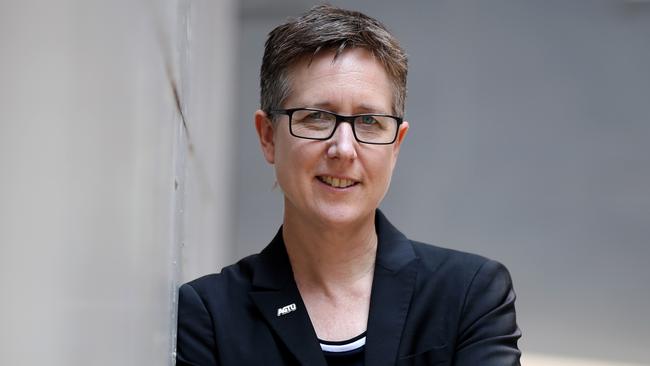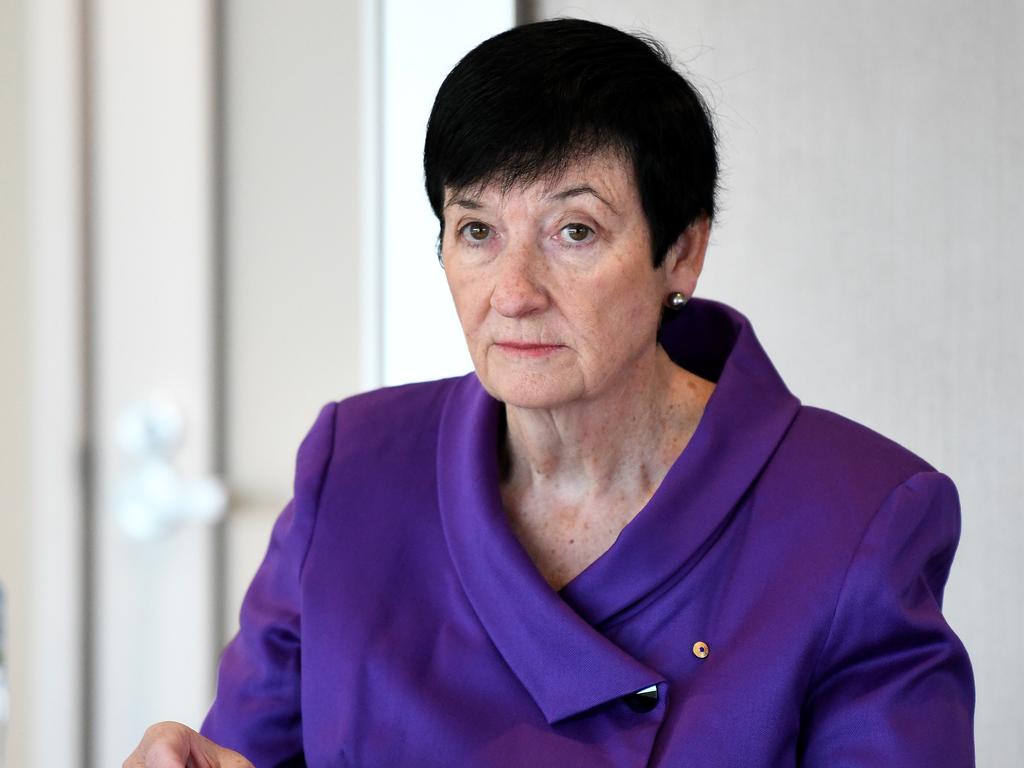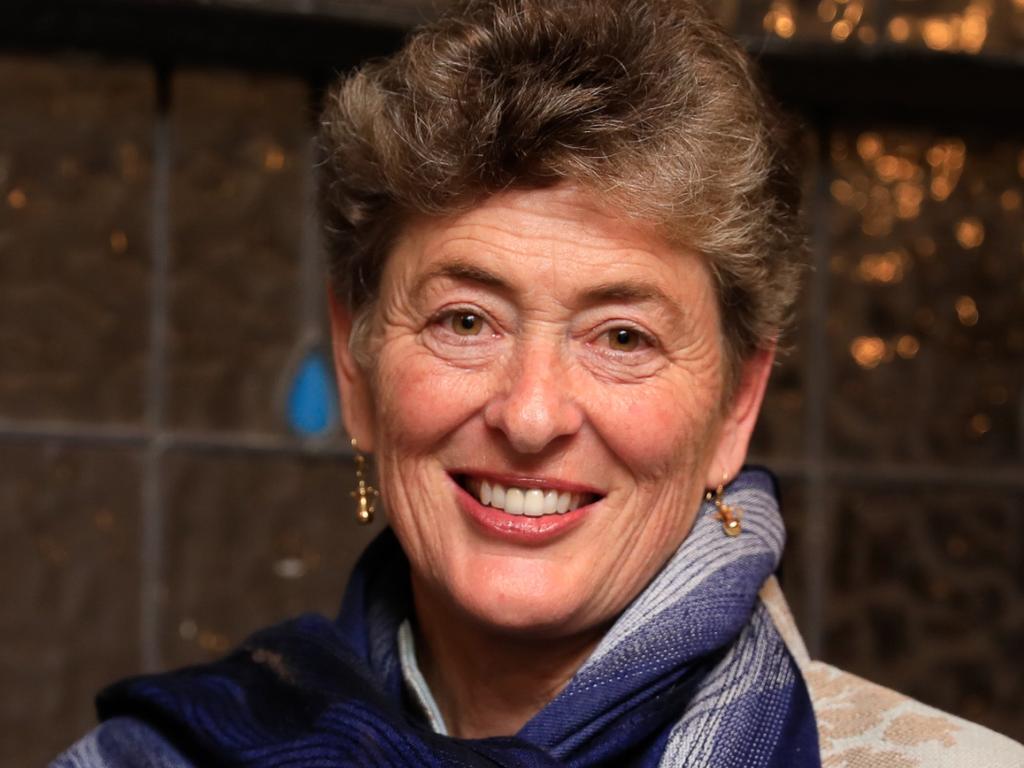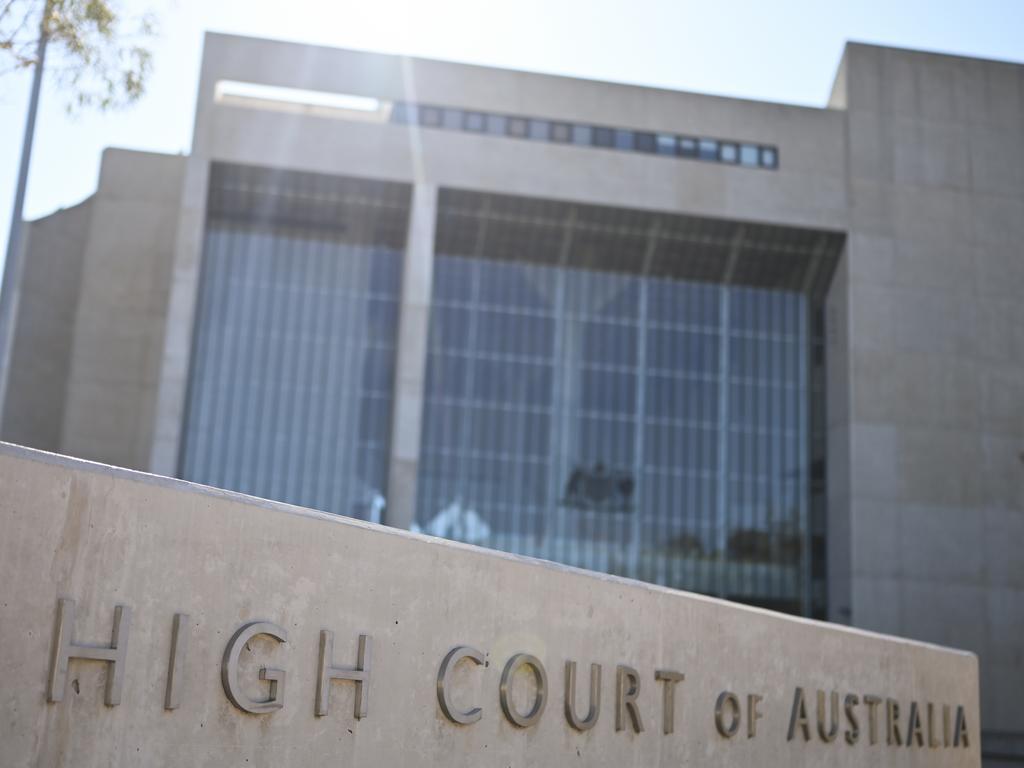ACTU boss Sally McManus opposes tax cut for workers
Sally McManus says the revenue hit could hinder the government’s ability to support vulnerable people through the COVID-19 crisis.

ACTU secretary Sally McManus has signalled unions will oppose any move by Scott Morrison to fast-track tax cuts for workers and businesses in the October budget, declaring the revenue hit could hinder the government’s ability to support vulnerable people through the COVID-19 crisis.
Ms McManus has also declared the union movement would only consider throwing its support behind extending short-term changes to workplace laws — aimed at giving bosses flexibility to reduce workers’ hours and change their roles, rosters’ and location — if the JobKeeper scheme was extended in full beyond September.
Ms McManus wants the government to commit to a six-month extension of the full $1500 fortnightly payment for workers.
“If JobKeeper doesn’t get extended then extending those flexibilities wouldn’t be something we would support,” Ms McManus told The Australian. “If (the government) are going to extend it then we will be happy to talk to them around further flexibilities.”
The position sets up a potential impasse with the government, which is weighing up whether to roll back government assistance after September and give support to specific industries worst affected by the response to the global pandemic.
The national cabinet will meet on Friday to discuss how to support the economic recovery with Scott Morrison and state and territory leaders also due to discuss the Victorian outbreak, the hotel quarantine regime, and decide on a cap on the number of Australians able to arrive home from overseas.
Health Minister Greg Hunt has flagged possible delays for Australians returning home due to a review of the country’s hotel quarantine system.
“For Australians who are coming now, five months after the virus first started, then obviously each will have their own circumstances. And if they do have to wait, we ask them to be patient,” Mr Hunt said.
With Josh Frydenberg revealing this week he was considering bringing forward legislated income tax cuts in the October budget, Ms McManus cast doubt on whether the measure would improve consumer confidence or bolster the economy.
She said the government should prioritise reforms aimed at improving job security and ensuring businesses and high-income individuals were “paying their fair share (of tax) in the first place”.
“The most important thing at the moment is to get confidence back into the system and we are not convinced tax cuts do that,” Ms McManus said. “If you cut taxes again it is less money that is being spent on essential services that we all need. So you might receive a minor increase in take home pay but if that means you have got to pay more to go to the doctor, what is the point?”
Under legislated tax cuts due to be phased in by 2024, the 37 per cent bracket will be abolished and every dollar earned from $45,000 to $120,000 will be taxed at a rate of 30 per cent. The 19 per cent tax rate will be lifted from $37,000 to $45,000.
Business leaders are also pressuring the government to fast track legislated company tax cuts and include big corporations in any move to a 25 per cent flat rate.
But Ms McManus said proposals to lower the company tax rate — or bring forward legislated corporate tax cuts — should not be considered before an overhaul of regulations to “close the rorts”.
“We worry if you have company tax cuts that is money that is coming out of hospitals and our school system.
“If we fix the tax system, close the loopholes, close the rorts, how much money is that going to raise? If it is going to raise a fair bit of money, there could be a consideration about where that is spent.
“We know that a third of the biggest companies in our country don’t pay any tax. We know that very high end individuals often pay less tax than minimum wage earners. So that has got to be fixed.
“During this pandemic the heroes have been the cleaners, the supermarket workers, all of those people. We can’t have a situation afterwards where we do things that are going to exacerbate inequality and hurt those people.”
Opposition Treasury spokesman Jim Chalmers on Wednesday said Labor would consider supporting personal tax cuts in the budget, arguing that the ALP would “engage with that constructively and responsibly”.
Ms McManus, who is pushing the government for a special “paid pandemic leave” at the full rate of pay for people in quarantine, said the government should extend the full JobKeeper scheme of $1500 a fortnight for another six months.
“Unless all of a sudden a vaccine comes out of nowhere, borders are going to be closed for six months time and probably longer,” she said.
“We are going to need to keep social distancing happening. So that means anything that is a public gathering, whether that be a restaurant or whether that be entertainment, all of those things are going to be at reduced capacity.”
She said it would be a mistake to lower the rate of payment or target the payment for sectors that were most impacted by the pandemic. “It is a much better way to go about it ... to apply it based on the level of distress of a company rather than a sector approach. Because in the end the sector approach is going to miss people out and be an inaccurate way of doing it,” she said.








To join the conversation, please log in. Don't have an account? Register
Join the conversation, you are commenting as Logout